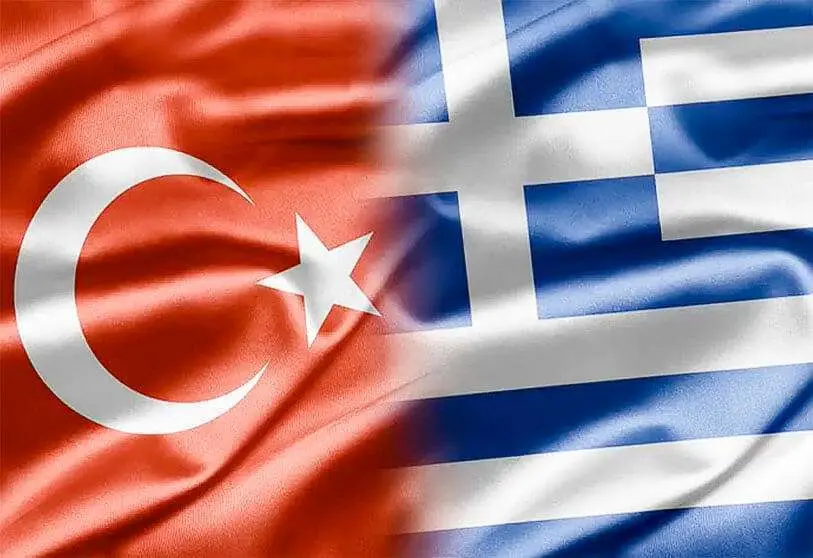Greece versus Turkey

Turkey's militaristic policies intensify the risks of a major conflict in the Mediterranean. The drums of war that are beginning to sound more loudly between Greece and Turkey are very worrying, and a conflict between the two old Mediterranean enemies could involve all of us Europeans. The Athens government, through its foreign minister Nikos Dendias, has made it clear that if it comes under armed attack from its Turkish neighbour it will invoke a section of the 2009 Treaty on European Union that obliges member states to provide aid and assistance to another EU country facing armed aggression.
Greece and Turkey have been on the brink of war three times since 1974. The subject of dispute at the moment is Turkish President Recep Tayyip Erdogan's ambition to appropriate a large gas pocket in an area of the Mediterranean where EU member Cyprus insists it has exclusive rights. Erdogan has sent warships to protect his interests in the area and those of the Turkish Cypriots.
Greece's request to its European partners, for now, is limited to preparing economic sanctions against Turkey if it continues its oil and gas explorations off the Greek islands. These sanctions could represent serious problems for a Turkish economy that is already in serious difficulty. Greece is claiming exclusive rights in the Turkish target areas, which in the case of Crete are far from the Turkish coast. To cover his ambitions, Erdogan signed a maritime border agreement last November with the National Accord Government of Libya, one of the parties to the Libyan conflict, led by Prime Minister Fayez Sarraj, which is dominated by the Islamists, although it enjoys the recognition of the United Nations.
The Turkish military intervention prevented Sarraj's defeat by Marshal Haftar in Tripoli and is now attacking the coastal positions of Sirte. The Russian presence in the Libyan conflict, where there are many interests of several countries, is now used by Erdogan to gain the support of the American president, Donald Trump. However, Turkey's aggressive policy in Syria, Iraq and Libya, plus its plans in the Sahel and Sahara, are already openly clashing with countries like France and Egypt that are willing to confront Erdogan's neo-otomanism, as well as several Arab nations. Both the French and Egyptian presidents have drawn red lines, one of which is the refusal of Turkish troops to control Sirte. In his own country, Erdogan's popularity is declining every day.

